Resources

Click Here for Book Review Abstract: Academic libraries are in the midst of significant disruption. Academic librarians and university administrators know they need to change, but are not sure how. Bits and pieces of what needs to happen are clear, but the whole picture is hard to grasp. Reimagining the Academic Library paints a simple straightforward picture of the changes affecting academic libraries and what academic librarians need to do to respond to the changes would help to guide future library practice. The aim is to explain where academic libraries need to go and how to get there in a book that can be read in a weekend. David Lewis provides a readable survey of the current state of academic library practice and proposes where academic libraries need to go in the future to provide value to their campuses. His primary focus is on collections as this is the area with the greatest opportunity for change and is the driver of most library cost. Lewis provides an accessible framework for thinking about how library practice needs to adjust in the digital environment. The book will be useful not only to academic librarians, but also for librarians to share with presidents and provosts who a concise source for understanding where and how to focus their expenditures on libraries. (From the Publisher)
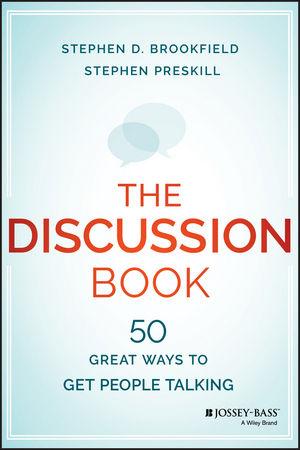
Do you need a resource that you can pull out of your pocket to liven up meetings, trainings, professional development, and teaching? The fifty easily applied techniques in this timely manual spur creativity, stimulate energy, keep groups focused, and increase participation. Whether you're teaching classes, facilitating employee training, leading organizational or community meetings, furthering staff and professional development, guiding town halls, or working with congregations, The Discussion Book is your go-to guide for improving any group process. Each of the concrete techniques and exercises is clearly described with guidance on selection and implementation, as well as advice on which pitfalls to avoid. All of the techniques: - Offer new ways to engage people and energize groups - Get employees, students, colleagues, constituents, and community members to participate more fully in deliberative decision-making - Encourage creativity and openness to new perspectives - Increase collaboration and build cohesive teams - Keep groups focused on important topics and hard-to-address issues Derived from the authors' decades of experience using these exercises with schools, colleges, corporations, the military, social movements, health care organizations, prisons, unions, non-profits, and elsewhere, The Discussion Book will help you guide discussions that matter. (From the Publisher)
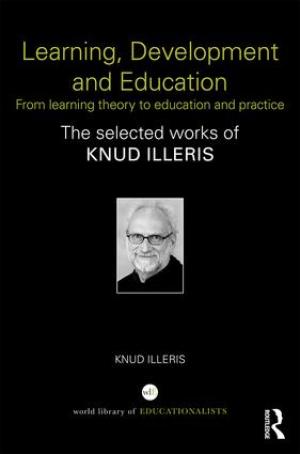
Click Here for Book Review Abstract: In the World Library of Educationalists, international experts themselves compile career-long collections of what they judge to be their finest pieces – extracts from books, key articles, salient research findings, major theoretical and practical contributions – so the world can read them in a single manageable volume. Readers will be able to follow the themes and strands and see how their work contributes to the development of the field. This volume brings together the selected works of Knud Illeris. Leaving a promising business career at age 27 to begin his higher education, Knud Illeris exemplifies the true spirit of youth and adult education that has resulted in him having published in almost twenty countries, including the UK, Germany, China, Korea and Brazil. Knud Illeris’ work revolves around the way learning takes place and in some cases does not take palce. Split into five parts; - Learning Theory - Lifelong Learning as a Psychological Process - Special Learning Issues - Various Learning Approaches to Education - Learning in Working Life Learning, Development and Education: From learning theory to education and practice is arranged thematically and examines youth and adult learning through Illeris’ model based on three dimensions of learning and competence development– emotional, cognitive and social, and four kinds of learning. In this collection of his papers, written over a period of almost five decades, and published in multiple languages, spanning from Faroese to Chinese, some of his most important works are chronicled. This compelling overview of Illeris’ contribution to educational thinking and theory charts the challenges and obstacles faced by disciplination and selection, and offers a genuine impression and understanding of an almost lifelong engagement with a wide range of topics in the field of learning – an engagement which has been the central area of Illeris’ academic life. (From the Publisher)
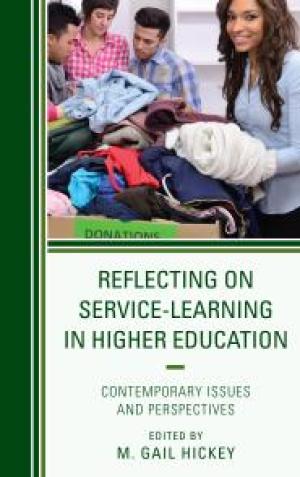
Click Here for Book Review Abstract: Reflecting on Service-Learning in Higher Education: Contemporary Issues and Perspectives examines forms of pedagogy such as service-learning, experiential learning, and problem-based learning in order to determine how students make connections between and among abstract academic concepts and real-life issues. This edited collection is divided into three sections—“Reflecting on Community Partnerships,” “Reflecting on Classroom Practice,” and “Reflecting on Diversity”—so as to represent interdisciplinary subjects, diverse student populations, and differing instructional perspectives about service-learning in higher education. Contributors provide service-learning programs and plans that can be replicated or adapted at other institutions of higher education. This book is recommended for scholars and practitioners of education. (From the Publisher)
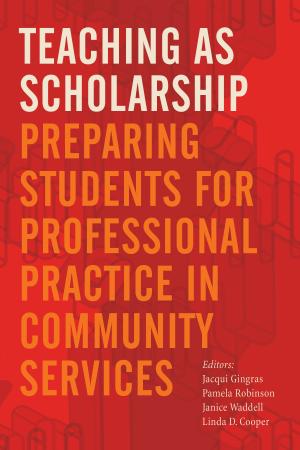
Click Here for Book Review Abstract: This book is about teaching for professional practice and explores ways to engage students in the classroom. It draws on the principles of rigorous scholarship and focuses on interactive learning between the class and the professor and among the students. Each contributor addresses the need to connect theory with community practice, deploying different methods in different contexts, and sharing scholarly reflections about how to improve the craft of teaching. The essays offer practical suggestions that allow readers to adapt and apply these ideas in their own classrooms to suit their particular contexts and share the outcomes of that process. (From the Publisher)

Click Here for Book Review Abstract: At a time of impending demographic shifts, faculty and administrators in higher education around the world are becoming aware of the need to address the systemic practices and barriers that contribute to inequitable educational outcomes of racially and ethnically diverse students. Focusing on the higher education learning environment, this volume illuminates the global relevance of critical and inclusive pedagogies (CIP), and demonstrates how their application can transform the teaching and learning process and promote more equitable educational outcomes among all students, but especially racially minoritized students. The examples in this book illustrate the importance of recognizing the detrimental impact of dominant ideologies, of evaluating who is being included in and excluded from the learning process, and paying attention to when teaching fails to consider students’ varying social, psychological, physical and/or emotional needs. This edited volume brings CIP into the realm of comparative education by gathering scholars from across academic disciplines and countries to explore how these pedagogies not only promote deep learning among students, but also better equip instructors to attend to the needs of diverse students by prioritizing their intellectual and social development; creating identity affirming learning environments that foster high expectations; recognizing the value of the cultural and national differences that learners bring to the educational experience; and engaging the “whole” student in the teaching and learning process. (From the Publisher)
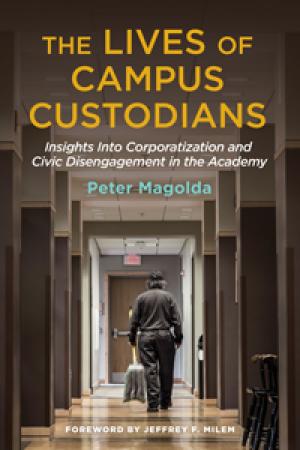
Click Here for Book Review This unique study uncovers the lives and working conditions of a group of individuals who are usually rendered invisible on college campuses--the custodians who daily clean the offices, residence halls, bathrooms and public spaces. In doing so it also reveals universities’ equally invisible practices that frequently contradict their espoused values of inclusion and equity, and their profession that those on the margins are important members of the campus community. This vivid ethnography is the fruit of the year’s fieldwork that Peter Magolda’s undertook at two universities. His purpose was to shine a light on a subculture that neither decision-makers nor campus community members know very much about, let alone understand the motivations and aspirations of those who perform this work; and to pose fundamental questions about the moral implications of the corporatization of higher education and its impact on its lowest paid and most vulnerable employees. Working alongside and learning about the lives of over thirty janitorial staff, Peter Magolda becomes privy to acts of courage, resilience, and inspiration, as well as witness to their work ethic, and to instances of intolerance, inequity, and injustices. We learn the stories of remarkable people, and about their daily concerns, their fears and contributions. Peter Magolda raises such questions as: Does the academy still believe wisdom is exclusive to particular professions or classes of people? Are universities really inclusive? Is addressing service workers’ concerns part of the mission of higher education? If universities profess to value education, why make it difficult for those on the margins, such as custodians, to “get educated.” The book concludes with the research participants’ and the author’s reflections about ways that colleges can improve the lives of those whose underpaid and unremarked labor is so essential to the smooth running of their campuses. Appendices provide information about the research methodology and methods, as well as a discussion of the influence of corporate managerialism on ethnographic research. (From the Publisher)
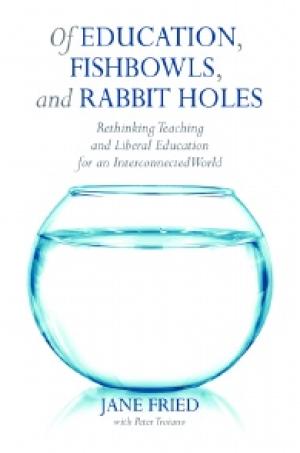
This book questions some of our most ingrained assumptions, not only about the nature of teaching and learning, but about what constitutes education, and about the cultural determinants of what is taught. What if who you think you are profoundly affects what and how you learn? Since Descartes, teachers in the Western tradition have dismissed the role of self in learning. What if our beliefs about self and learning are wrong, and relevance of knowledge to self actually enhances learning, as current research suggests? Jane Fried deconstructs the Grand Western Narrative of teaching and learning, describing it is a cultural fishbowl through which we see the world, rarely aware of the fishbowl itself, be it disciplinary constructs or the definition of liberal education. She leads us on a journey to question “the way things are”; to attend to the personal narratives of others from ethnic, racial and faith groups different from ourselves; to rediscover self-authorship as the core task of learning in college; and to empower ourselves and students to navigate the disorientation of the Alice in Wonderland rabbit holes of modern life. This is a book for all educators concerned about the purpose of college and of the liberal arts in the 21st century, and what it is we should reasonably expect students to learn. Jane Fried both upends many received ideas and offers constructive insights based on science and evidence, and does so in an engaging way that will stimulate reflection. (From the Publisher)
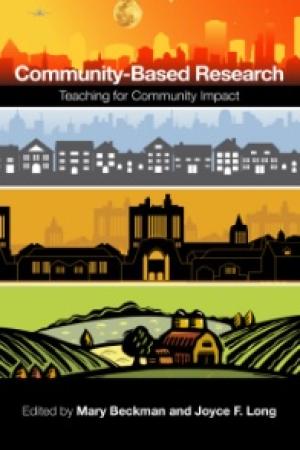
Community-based research (CBR) refers to collaborative investigation by academics and non-academic community members that fosters positive change on a local level. Despite recent trends toward engaged scholarship, few publications demonstrate how to effectively integrate CBR into academic course work or take advantage of its potential for achieving community change. Community-Based Research: Teaching for Community Impact fills these gaps by providing: * An overview of language and methods used by professionals engaged in CBR * A framework for orienting CBR toward concrete community outcomes * Effective ways to integrate CBR into course content, student-driven projects, and initiatives spanning disciplines, curricula, campuses and countries * Lessons learned in working toward positive outcomes for students and in communities This text is designed for faculty, graduate students, service-learning and other engaged learning and scholarship practitioners, alliance members, special interest groups, and organizations that desire to strengthen student learning and utilize research for improvement in their communities. (From the Publisher)
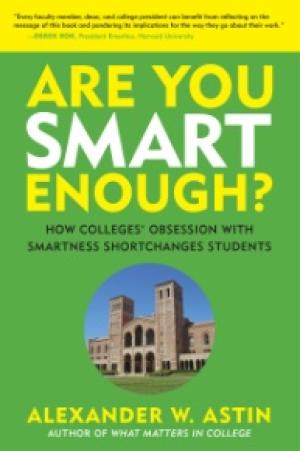
Click Here for Book Review This book explores the many ways in which the obsession with “being smart” distorts the life of a typical college or university, and how this obsession leads to a higher education that shortchanges the majority of students, and by extension, our society’s need for an educated population. The author calls on his colleagues in higher education to return the focus to the true mission of developing the potential of each student: However “smart” they are when they get to college, both the student and the college should be able to show what they learned while there. Unfortunately, colleges and universities have embraced two very narrow definitions of smartness: the course grade and especially the standardized test. A large body of research shows that it will be very difficult for colleges to fulfill their stated mission unless they substantially broaden their conception to include student qualities such as leadership, social responsibility, honesty, empathy, and citizenship. Specifically, the book grapples with issues such as the following: • Why America’s 3,000-plus colleges and universities have evolved into a hierarchical pecking order, where institutions compete with each other to recruit “smart” students, and where a handful of elite institutions at the top of the pecking order enroll the “smartest” students. • Why higher education favors its smartest students to the point where the “not so smart” students get second-class treatment. • Why so many colleges find it difficult to make good on their commitment to affirmative action and “equality of opportunity.” • Why college faculties tend to value being smart more than developing students’ smartness (i.e., teaching and learning). (From the Publisher)